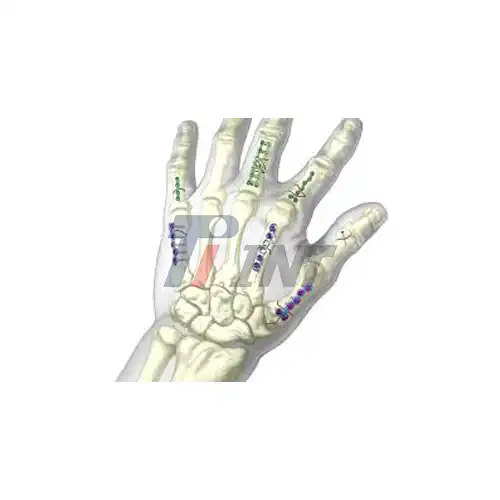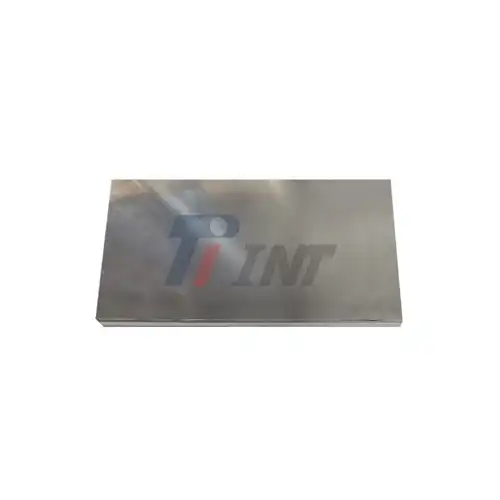Understanding the Properties of Medical Titanium Bars
Medical titanium bars are engineered to meet the demanding requirements of orthopedic treatments. These specialized components offer a unique combination of properties that make them indispensable in modern medical procedures.
High Strength-to-Weight Ratio
One of the most salient features of medical titanium bars is their exceptional strength-to-weight ratio. This characteristic allows for the creation of implants that are both robust and lightweight. In orthopedic applications, this translates to devices that can withstand significant loads while minimizing the overall burden on the patient's body. The reduced weight of titanium implants contributes to improved patient comfort and mobility, particularly in cases where large implants are necessary.
Fatigue Resistance
Orthopedic implants are subjected to repeated stress cycles within the human body. Medical titanium bars excel in this environment due to their superior fatigue resistance. This property ensures that the implants maintain their structural integrity over time, even when exposed to continuous loading and unloading. The ability to withstand cyclic stress is crucial for long-term implant success and patient safety, particularly in weight-bearing applications such as hip or knee replacements.
Low Elastic Modulus
The elastic modulus of medical titanium bars is closer to that of human bone compared to many other implant materials. This similarity in mechanical properties helps to reduce stress shielding, a phenomenon where the implant bears a disproportionate amount of load, leading to bone resorption around the implant. By more evenly distributing stress between the implant and surrounding bone, titanium bars promote better bone integration and healing. This characteristic is particularly beneficial in spinal fusion procedures and long bone fracture fixation.
Biocompatibility
Perhaps one of the most critical properties of medical titanium bars is their exceptional biocompatibility. Titanium and its alloys have a low risk of triggering adverse reactions in the human body. This biocompatibility is attributed to the formation of a stable oxide layer on the surface of the titanium, which prevents corrosion and limits the release of metal ions into surrounding tissues. As a result, medical titanium bars are less likely to cause inflammation, allergic reactions, or other complications that could compromise the success of orthopedic treatments.
Material Selection and Specifications for Medical Titanium Bars
Choosing the appropriate material and specifications for medical titanium bars is a critical step in ensuring the success of orthopedic treatments. Different grades of titanium and titanium alloys offer varying properties that can be tailored to specific medical applications.
Pure Titanium vs. Titanium Alloys
Medical titanium bars are available in both pure titanium and titanium alloy compositions. Pure titanium, while highly biocompatible, has lower strength compared to titanium alloys. It is often used in applications where maximum biocompatibility is required and lower mechanical loads are expected. Titanium alloys, particularly Ti6Al4V and Ti6Al4V ELI (Extra Low Interstitial), offer enhanced mechanical properties while maintaining excellent biocompatibility. These alloys are commonly used in load-bearing orthopedic implants due to their superior strength and fatigue resistance.
Dimensional Considerations
Medical titanium bars are available in a wide range of dimensions to accommodate various orthopedic applications. The diameter of these bars typically ranges from 6 mm to 150 mm, allowing for the fabrication of implants suitable for different anatomical locations and patient sizes. Length options typically span from 1000 mm to 3000 mm, providing flexibility in implant design and manufacturing. The ability to select precise dimensions ensures that orthopedic surgeons can choose or customize implants that fit the specific anatomical requirements of each patient.
Mechanical Properties
The mechanical properties of medical titanium bars are crucial for their performance in orthopedic applications. For example, Ti6Al4V ELI offers a minimum tensile strength of 895 MPa, ensuring that implants can withstand the significant forces experienced within the human body. Additionally, the elongation of ≥10% provides a degree of ductility, which can be beneficial in certain applications where some flexibility is desired. These mechanical properties contribute to the overall durability and reliability of orthopedic implants made from medical titanium bars.
Surface Finish
The surface finish of medical titanium bars plays a significant role in their performance and integration with biological tissues. Common surface finishes include polished and sandblasted. Polished surfaces can reduce friction and wear in articulating joints, while sandblasted surfaces may promote better osseointegration in applications where bone ingrowth is desired. The choice of surface finish depends on the specific requirements of the orthopedic treatment and the intended interaction between the implant and surrounding tissues.
Compliance and Quality Assurance in Medical Titanium Bar Production
Ensuring the quality and safety of medical titanium bars is paramount in orthopedic treatments. Rigorous compliance with international standards and quality management systems is essential to meet the exacting requirements of the medical device industry.
ISO Certifications
Medical titanium bar manufacturers should adhere to ISO standards that govern quality management and medical device production. ISO 9001:2015 certification demonstrates a commitment to overall quality management practices, ensuring consistent product quality and customer satisfaction. Additionally, ISO 13485:2016 certification specifically addresses quality management systems for medical devices, ensuring that the production of medical titanium bars meets the stringent requirements of the healthcare industry.
EU CE Certification
For medical titanium bars intended for use in the European market, EU CE certification is crucial. This certification indicates compliance with the Essential Requirements of the applicable EU directives, ensuring that the products meet safety, health, and environmental protection standards. CE-marked medical titanium bars demonstrate conformity with European regulations and can be freely marketed within the European Economic Area.
Quality Control Measures
Manufacturers of medical titanium bars implement comprehensive quality control measures throughout the production process. These measures may include:
- Raw material verification to ensure the purity and composition of titanium and alloying elements
- In-process inspections to monitor dimensional accuracy and surface quality
- Non-destructive testing techniques such as ultrasonic inspection to detect internal defects
- Mechanical testing to verify tensile strength, elongation, and other critical properties
- Chemical analysis to confirm material composition and impurity levels
- Microstructural examination to ensure proper grain structure and phase distribution
Traceability
Maintaining traceability throughout the production and distribution of medical titanium bars is essential for quality assurance and patient safety. Manufacturers implement lot tracking systems that allow for the identification of raw materials, processing parameters, and quality control results for each batch of titanium bars. This traceability enables rapid response in the event of any quality issues and facilitates compliance with regulatory requirements for medical device components.
Conclusion
Choosing the right medical titanium bar for orthopedic treatments is a complex process that requires careful consideration of material properties, specifications, and quality assurance measures. The unique combination of high strength-to-weight ratio, fatigue resistance, biocompatibility, and low elastic modulus makes titanium an ideal material for orthopedic implants. By selecting appropriate grades, dimensions, and surface finishes, healthcare professionals can ensure optimal outcomes for their patients.
Adherence to international standards and rigorous quality control measures further guarantees the safety and reliability of medical titanium bars in critical orthopedic applications.For more information on high-quality medical titanium products and customized solutions for orthopedic treatments, please contact us at export@tiint.com. Our team of experts is ready to assist you in selecting the ideal medical titanium bars for your specific orthopedic applications.


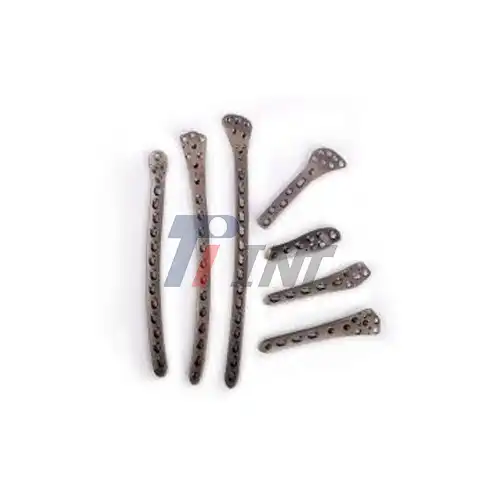
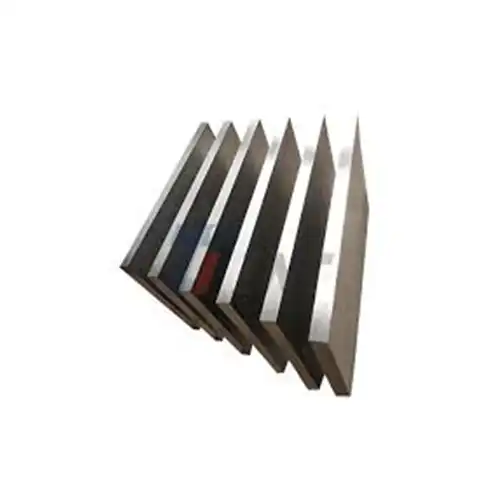






 2025-10-13 09:10:21
2025-10-13 09:10:21


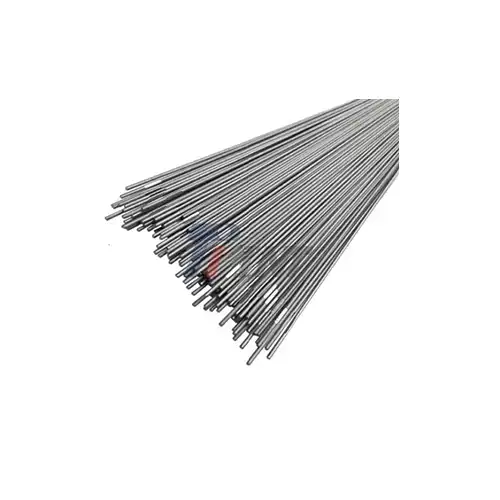
_1753429871786.webp)
_1752643437358.webp)
_1751959047184.webp)
_1753926673602.jpg)
